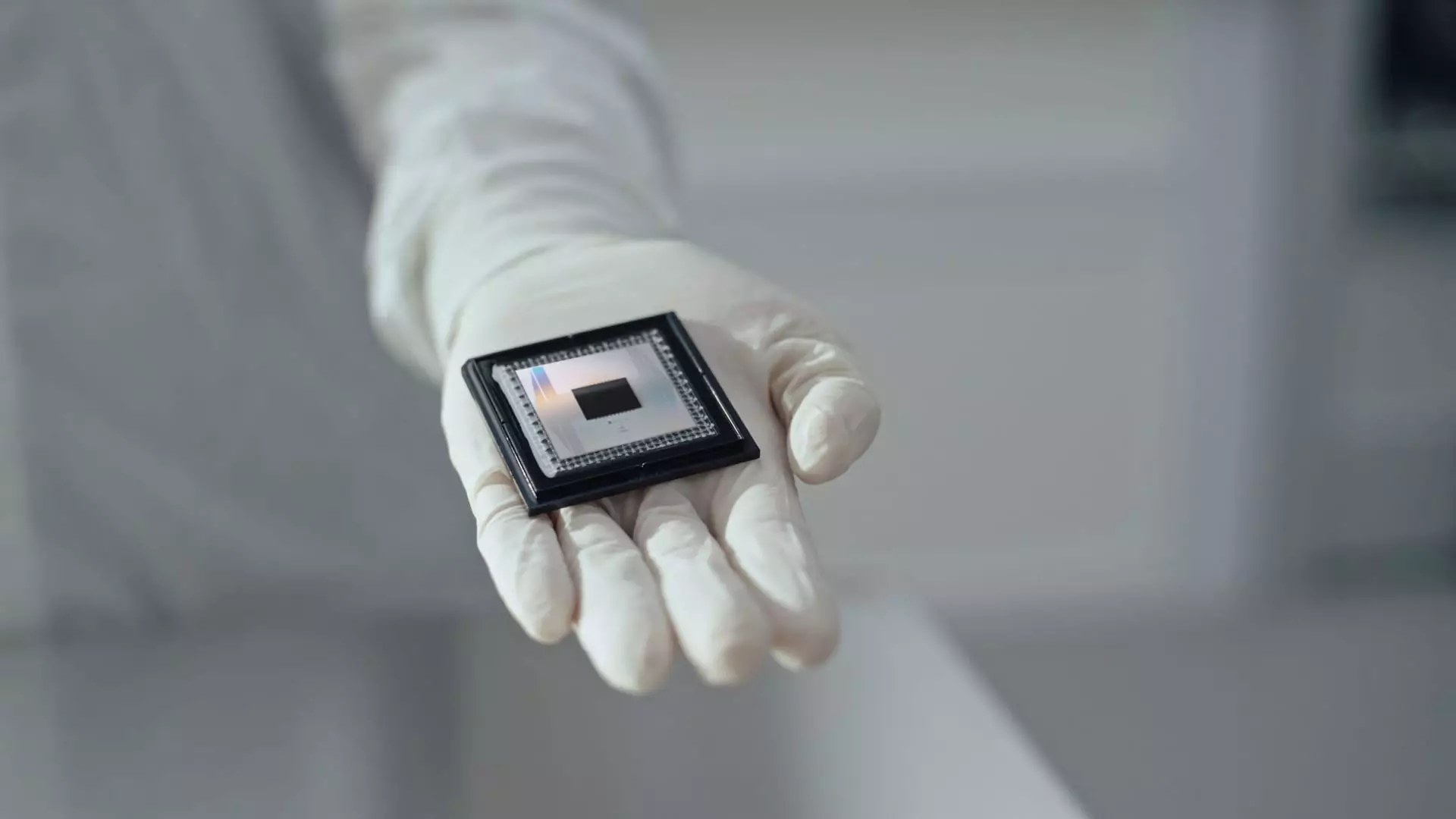Google’s introduction of the Willow quantum chip marks a significant step towards the practical application of quantum computing. As we stand on the threshold of this technological revolution, its implications extend far beyond theoretical frameworks and into industries poised for transformation. Notably, the realm of cryptocurrencies could be fundamentally reshaped by the capabilities of this new quantum technology.
The Willow chip claims to possess exceptional speed and accuracy, outperforming even the most powerful supercomputers by staggering margins. Google’s assertion that Willow can execute a specific computation in less than five minutes—tasks that would traditionally require an unfathomable 10 septillion years—poses exciting prospects for computing efficiency. However, previous quantum computing attempts struggled with reliability, often likened to a firehose of information lacking precision. The advent of Willow, which incorporates advanced error correction, aims to mitigate such challenges, suggesting a path toward larger, more effective quantum systems.
As we delve deeper into the capabilities of the Willow chip, a pressing concern arises regarding its potential threat to cryptographic systems. Quantum computing is fundamentally different from classical computing due to its reliance on qubits, which can represent multiple states simultaneously. This characteristic enables quantum computers to traverse multiple paths concurrently, significantly accelerating problem-solving processes, such as those underlying cryptocurrency algorithms. While the combined capabilities of qubits provide prospective tools for hackers, current technology, including Willow, is not yet at a stage where it can break existing cryptographic standards in a reasonable timeframe.
Experts stress that while Willow’s speed is remarkable, the quantum computing landscape is still in its infancy. Tim Hollebeek from DigiCert highlights that even with significant advancements, practical quantum computers capable of undermining cryptographic practices are at least a decade away. Google corroborates this sentiment, stating that existing quantum systems, including their latest chip, do not pose an immediate threat. The timeline for breaking RSA encryption—in use for securing blockchain transactions—is estimated at least ten years out, requiring a quantum computer with millions of qubits far exceeding current capabilities.
In anticipation of the future quantum landscape, the cybersecurity field is actively working to develop what’s termed “quantum-safe” cryptography. Agencies like the National Institute of Standards and Technology (NIST) are rolling out algorithms designed to resist potential quantum attacks. These efforts signal a proactive approach to encryption standards, demonstrating an understanding that evolution, rather than panic, is essential. Companies, including Google, have been integral in supporting these new standards, ensuring regulations remain ahead of technological advancements.
As concerns over the vulnerability of existing cryptocurrencies linger, there is growing speculation about the rise of quantum-safe digital currencies. Experts propose that new cryptocurrencies designed with post-quantum cryptography (PQC) could emerge, merging advanced algorithms that withstand quantum computing’s brute-force tactics. Taqi Raza from the University of Massachusetts Amherst suggests there is a real possibility for the integration of robust quantum-resistant techniques, which will collectively reshape how secure digital currencies operate.
Looking beyond the cryptocurrency sector, experts, such as Jeremy Allaire from Circle, posit that quantum computing could revolutionize a plethora of industries. The capability to develop better encryption methods while simultaneously unlocking previously hard-to-access data structures suggests quantum technologies will have wide-ranging applications, enhancing artificial intelligence, healthcare, data security, and energy management. As quantum computing technology matures, its application might be more profound than it initially appears, potentially igniting innovation across sectors.
Google’s Willow quantum chip symbolizes a pivotal progression in quantum computing and its potential impacts on cryptography and other industries. While its capabilities inspire excitement, they also invite scrutiny. The journey toward quantum supremacy will be gradual, and current technology is yet to threaten cryptographic standards. Nevertheless, as both the quantum computing landscape and cybersecurity climate evolve, the focus should be on collaborative progress and careful preparation for a future interwoven with quantum innovations. Embracing the promise of quantum technology without succumbing to the fear of its implications could usher in a new era of security and efficiency across various sectors.


Leave a Reply